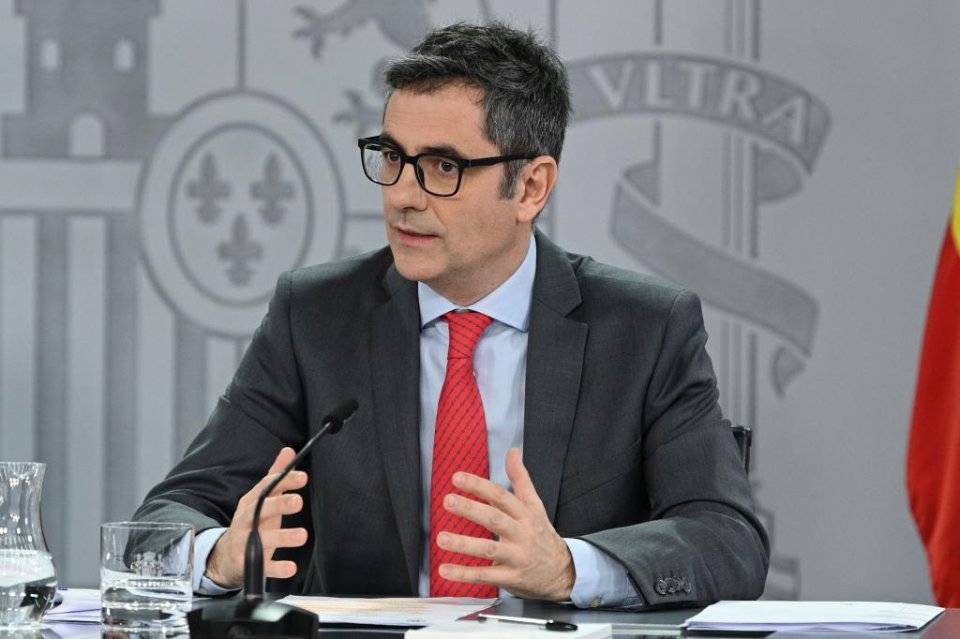Spain’s ruling PSOE socialists and Catalan pro-independence parties reached a deal on Tuesday to amend a planned amnesty law that was pledged by Prime Minister Pedro Sánchez to secure another term in office, including a controversial clause relating to terrorism. ALSO READ: Controversial Catalan amnesty bill passes first hurdle in Spanish Congress.
The changes will offer further protection to the pro-independence politicians and activists involved in the failed 2017 Catalan independence bid, notably Carles Puigdemont, head of the Junts per Catalunya (JxCat) party, who was the Catalan president at the time.
The draft amnesty law, which has yet to be approved by parliament, covers all events related to the Catalan independence drive, from 2012 to the present day, including a symbolic vote held in 2014 and the 2017 referendum which was marred by violence. ALSO READ: Amnesty bill registered in Spanish Congress – full details.
Sánchez agreed to the amnesty in exchange for crucial parliamentary support from JxCat and the pro-independence Esquerra Republicana (ERC) group in the key vote to reappoint him as prime minister at the head of a minority coaliton government between the PSOE and left-wing alliance of Sumar. ALSO READ: Pedro Sánchez re-elected as Spanish Prime Minister.
Justice Minister Félix Bolaños (main photo) told a news conference the government had agreed to two technical amendments with the ‘parliamentary groups which support the passage of the amnesty law’.
Under the agreement the crime of terrorism will only be applied to those covered by the amnesty law ‘if it relates to a serious violation of human rights’, he said.
‘There’s nothing outside the independence push that will benefit from the amnesty. The amnesty will be for presumed criminal behaviours only if they are related to the independence push,’ added Bolaños.
The precise amendments will exclude terrorism charges or convictions ‘if and when acts committed are deliberate and premeditated and have caused serious violations of human rights, as defined in Articles 2 and 3 of the European Convention on Human Rights and International Humanitarian Law’.
The requirement of a terrorism conviction will also be removed from the text of the amnesty bill, meaning that an accusation will be sufficient for a pardon to be considered.
The amendments were also supported by Sumar, the Basque Country parties EH Bildu and EAJ-PNV, and the Galician Nationalist party (BNG).
The aim of the pro-independence parties is to prevent Spanish National Court judge Manuel García-Castellón from investigating members of the Catalan Committees in Defence of the Republic (CDR) and the Tsunami Democràtic protest group for terrorism charges in order to prevent them from being granted amnesty.
Alongside protests from the CDR, the Tsunami Democràtic blocked key highways and attempted to shut down Barcelona airport, Spain’s second busiest in 2019, following the sentencing of nine Catalan leader to lengthy jail terms over their roles in the 2017 referendum. They were later pardoned.
Puigdemont fled to Belgium in late 2017 to avoid prosecution over the failed independence bid but the amnesty would allow him to return home. He is facing possible terrorism charges over his suspected links to the Tsunami Democràtic protest group. ALSO READ: Spanish judge now wants to question Puigdemont as part of terrorism investigation.
Amnesty Law
The amnesty bill passed its first hurdle in parliament just before the Christmas break. It will now be debated and voted on in the Spanish Congress on Tuesday 30 January. If passed, it will then go to Spain’s upper house, the Senate, where the right-wing People’s Party (PP) hold a majority and will attempt to delay its progress. ALSO READ: Feijóo vows to continue protests against amnesty ‘until there are new elections’.
If the Senate vetoes or amends the bill, which is likely given the PP’s majority, the bill will return to Congress. There, Sánchez will again have to use his majority to override the Senate’s veto and amendments and pass the law. Only then would the amnesty law be approved and implemented.
However, if a court raises the question of unconstitutionality, the amnesty law would not go into effect until the Spanish Constitutional Court issues its ruling, which could take another six months.
ALSO READ: Pedro Sánchez faces backlash and tough legislature ahead due to Catalan deal.
ALSO READ: The PSOE and Junts sign a pact that will guarantee investiture of Pedro Sánchez.
Click here for all our reports related to Catalan independence.
Sign up for the FREE Weekly Newsletter from Spain in English.
Please support Spain in English with a donation.
Click here to get your business activity or services listed on our DIRECTORY.
Click here for further details on how to ADVERTISE with us.


